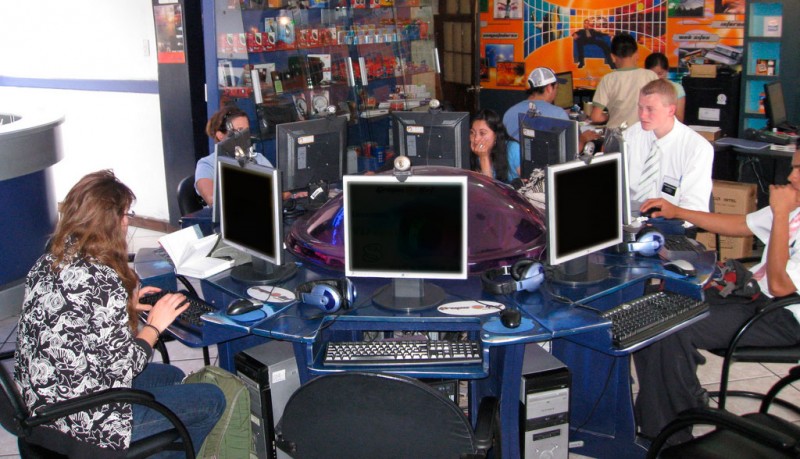Global Voices Advocacy's Netizen Report offers an international snapshot of challenges, victories, and emerging trends in Internet rights around the world.
According to recently leaked documents from the Spain-based multinational telecom giant Telefónica, a temporary Internet outage that prevented Ecuadorians from accessing Google and YouTube was the company’s response to a government order, rather than the result of a technical glitch as previously thought. The outage only lasted 33 minutes, according to the leaked documents. This appears to be the first documented instance of arbitrary blocking in Ecuador, according to Motherboard, though it is consistent with previous claims that the government censors the Internet.
Man Who Insulted Tanzania’s President Laughs All the Way to Court
Tanzanian netizen Isaac Habakuk Emily was charged with “insulting” the country’s president for comments he made on Facebook. The charges were issued under Tanzania’s controversial new Cybercrime Act No. 14 of 2015, which criminalizes publishing information that is “false, deceptive, misleading, or inaccurate,” resulting in fines that start at 3 million shillings and/or a jail term of no less than six months.
Venezuelan Police Preview Special Edition of ‘The Wire’ for Critics of President Maduro
A recent investigative report revealed that a group of intelligence agents from the Strategic Center for the Security and Protection of the Homeland, acting under direct instructions from President Nicolás Maduro, unlawfully wiretapped phone conversations, and hacked text messages and email communications between prominent opposition figures, including Henrique Capriles, María Corina Machado, Henry Ramos Allup, and Julio Borges.
Hacking Team’s targeted spyware has been used by Ecuadorian intelligence to infect the devices of activists, judges, and politicians who oppose the government of President Rafael Correa, according to a recent report by Derechos Digitales that extensively documents the company’s operations in the region. Though Hacking Team claims it vets its customers to ensure its products are not abused, evidence suggests that governments throughout Latin America use it widely to target dissidents and political opponents.
Twitter Gets Settled in China Unsettlingly
Twitter recently announced the appointment of Kathy Chen, a former employee of the People’s Liberation Army and the Ministry of Public Security, as its managing director for Greater China. The move has been seen by many Chinese netizens as unsettling, given Chen’s connections to the state. Twitter remains blocked in China, but advertising revenue from the mainland has grown 340 percent in the past year.
Cambodia Is Calling. Will You Accept the Warrantless Snooping?
A Cambodian human rights group is criticizing the recently passed Telecoms Law, which it claims undermines Cambodian citizens’ rights to free speech and privacy. The law was passed in December 2015, and is said to reflect the ruling party’s desire to stifle online conversations with elections approaching in 2017 and 2018, according to Global Voices’ Mong Palatino. Among other things, the law requires telecommunications companies to provide data about their users to government authorities without a warrant, and allows the secret surveillance of telecommunications with the approval of a “legitimate authority.”
Free Expression Just Went Interactive in Honduras
Honduras now has an online, interactive platform dedicated to statistics about the freedom of expression. The Committee for Free Expression (C-Libre) says it is offering the tool as an open space where anyone can analyze the freedom of expression in Honduras. The platform provides graphics by occupation, medium type, direct aggressions, indirect aggressions, aggressor agent, location, and monthly occurrence. People can also request or suggest information to C-Libre by sending messages via social networks. IFEX supported C-Libre in the creation of the platform.
New Research
-
Toward a Human Rights Method for Measuring International Copyright Law’s Compliance with International Human Rights Law by Saleh Al-Sharieh, Utrecht Journal of International and European Law
-
Hacking Team: Malware Para La Vigilancia En America Latina, by Derechos Digitales
Subscribe to the Netizen Report by email
Mary Aviles, Ellery Roberts Biddle, Weiping Li, Hae-in Lim, Elizabeth Rivera, and Sarah Myers West contributed to this report.








